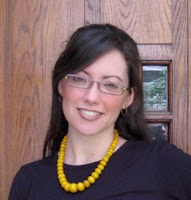On Wednesday, November 14, Dr. Valerie Hudson gave a lecture about her new book Sex and the World Peace in the University Center Theatre. An audience of about 300 attended her fascinating talk. Dr. Hudson is the George H.W. Bush Chair at the Bush School of Government and Public Service at Texan A&M University. Her address was co-sponsored by the Department of Political Science, the Program in International Studies, and the Center for Research on Women.
In her book, Hudson reveals some groundbreaking conclusions about how to promote peace in the modern world. She argues that the very best predictor of state security is its treatment of women. She started her lecture by welcoming the audience and showing her pleasure to be at the University of Memphis. She spent her day with the political science students and visiting the National Civil Rights Museum. Then she apologized, since the copies of her book did not arrive in Memphis due to the continued problems from Hurricane Sandy.
In her field of study, Hudson tries to move beyond the issue of conflict, which encompasses such themes as ethno-nationalism, democracy deficits, and poverty. She quoted Kofi Annan, the UN Secretary General who was among the first major figures of the 21st century to talk about empowering women and girls. Dr. Hudson related how colleagues at her old university had been skeptical about her research into the correlations between the status of women and national security; then she showed statistics for death rates from World War One and Two, revealing that the lost lives of women (from such phenomena as infanticide of young women) were even higher . She asked: “Might the security of women impact security of states?”
Dr. Hudson also discussed the issue of women and food security, as women have to find food and cook it, beside completing their other chores in homes and farms. Where women have domestic security, there are higher rates of food security, and with that there is state stability. Women also have a role in economic prosperity, as lower rates of female education correspond to lower national income. In relation to health issues, the larger the gender gap, the higher the rate of disease. When the gender gap gets bigger, government corruption also increases. When the gap is lowered, the level of trust in the government becomes higher. In some cultures, marriage is arranged for economic stability, which leads to higher level of population since women have no control on their bodies. Treating women inadequately is the key for physical and structural violence in the world.
The subjugation of women is a threat to the security of the United States, according to Hillary Clinton. Hudson mentioned three “wounds” about women: violence against women, inadequate family laws, and lack of human-decision making. She talked about bad conditions and harsh situations that women suffer from around the world, such as rape, early marriage, sexual assault, domestic violence, women trafficking, honor crimes, sex selective abortion, and property rights. She concluded her lecture by listing several concrete first steps to recognize women as a half of the human race, such as accurate statistics on gender disparities and enforcement of international laws: she characterized these steps as the harvest of low-hanging fruits.
After fielding some interesting questions from the large and interested audience, Dr. Hudson chatted with many guests in an individual setting. Her work and her talk provided an inspiration for many attendees, and it lent an appropriate conclusion to an exceptionally successful Fall 2012 season for the Marcus Orr Center for the Humanities.






